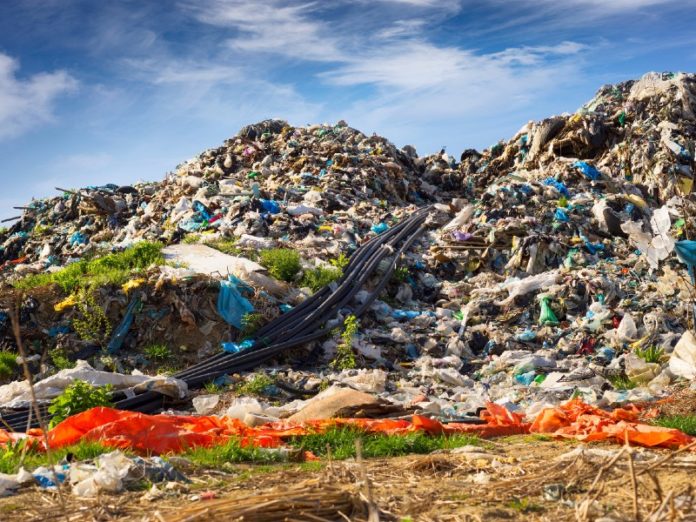Various countries are at different stages of developing biogas for energy technology. An international Digital Global Biogas Cooperation (DiBiCoo) project has been set up for markets in emerging countries to get ready for the uptake of sustainable biogas technologies and projects.
DiBiCoo, through country partner GreenCape, will host a second workshop aimed at sector participants on 20 October, after a successful first stakeholder workshop in June.
Speaking to ESI Africa, Mandisa Mkhize, the senior energy analyst at GreenCape, said participants of the first workshop consisted of a mixture of experienced biogas stakeholders and newly interested stakeholders, spanning both private and public sectors, with some representation from financial institutions.
Have you read?
Networking to increase uptake of biogas technologies
She believes participants of the first workshop gained a much better understanding of the local market and framework for biogas projects as well as the opportunities related to the potential of an online matchmaking platform currently being developed by DiBiCoo.
Mkhize shared that while many lessons were learned during the first workshop, her key takeaway was “it is very important to appropriately structure your project for the appropriate type of funding considerations”.
Creating digital connections
Aleksejs Zacepins, the senior researcher at the Latvia University of Life Sciences and Technology, is working on the development of the DiBiCoo Digital Biogas Matchmaking Platform. Currently, in beta testing, this database for interested stakeholders will be used for networking, matchmaking and information exchange.
He said the platform should officially launch during October, at which point they hope registering users will suggest the type of functionality they need beyond the basic browsing and matchmaking function, such as instant contacting for companies or particular kinds of notification messages for the platform users.
“African stakeholders can participate in the platform by creating a company profile describing company competencies like field of business, or else our stakeholders can publish a specific business need or opportunity they are seeking from a partner in another country,” explained Zacepins.
Have you read?
Is there renewed hope for biogas projects in South Africa?
DiBiCoo demo cases
The core aim of the Digital Global Biogas Cooperation (DiBiCoo) project is to prepare markets in emerging countries for the uptake of sustainable biogas technologies and projects.
This programme consists of five demo cases which are all to be guided up to the investment stage through the joint elaboration of technical concepts, an impact assessment – including socio-economic and environmental aspects – and the development of business models for financially viable projects.
The five promising project opportunities in South Africa, Ghana, Indonesia, Argentina and Ethiopia will serve as examples of how to set up reliable biogas projects in cooperation with European technology providers. This is meant to support the development of a healthy biogas sector in developing countries.
The South African demo case for the DiBiCoo programme is a landfill biogas project in Lanseria. The biogas plant treats excess sludge from the Wastewater Treatment Works and organic waste coming from the housing project developing 50,000 homes, close to an industrial area. Mkhize explained: “The project design is beneficial because the project can use organic waste from the homes and bulk it up with industrial waste for feedstock. Also, there are opportunities for additional off-takers.
Have you read
Utilising business waste stream to address energy needs
“Once the project reaches commercial operations close, it has the potential for replication into housing/commercial projects. Although the co-location with industrial areas is beneficial for this project model it is not crucial to replicate this demo case in other areas of South Africa,” said Mkhize.
The proof of this kind of concept will be beneficial for South Africa though, considering the country is moving towards a target of 40% biogas from organic waste to be produced by 2025, in an effort to divert organic waste from the country’s landfills.
Coming up next: Exploring biogas finance opportunities
An information dissemination-based local stakeholder’s workshop is planned for 20 October, with the purpose of presenting the DiBiCoo Identifying of financing options for biogas projects report for South Africa.
“The focus for this local workshop would be to provide the participants with a better understanding of how to identify ‘where’ to find suitable financing options for their project at relevant project stages. The local workshop is aimed at every stakeholder keen to better understand the biogas financing options available in South Africa,” explained Mkhize.
Increased interest by businesses to explore and use biogas and other bioenergy technologies to secure and reduce energy demand, improve water efficiency and reduce and beneficiate waste streams all mean an increasing need to establish financing mechanisms to support these projects.
However, a majority of stakeholders do not know where and when to look for funding for biogas projects and are often discouraged because their timing may be wrong or they approach the wrong funder.
Mkhize expects the second workshop will deliver useful and practical insights and lessons from the financial industry. ESI
Written by Theresa Smith, content producer, ESI Africa
